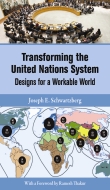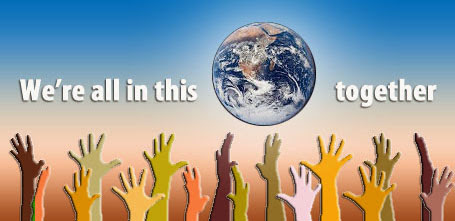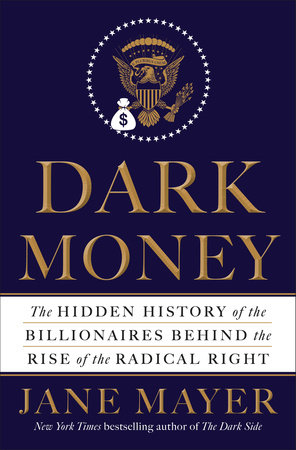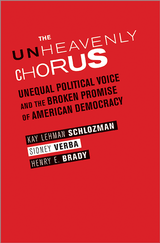Now his last budget called for a $1 TRILLION investment in modernizing our nuclear arsenal. I urge readers of this blog to read the short (4pp.)resolution and try to determine how we could possibly be against beginning a process to make illegal these weapons of mass destruction. Only reason I can think of, is that we want to be able to use them again. Why else budget $1 Trillion for their improvement?

Before I read about this vote from last night I began my morning with an engaging thoughtful work by Joseph Schwartzberg, Transforming the United Nations System: Designs for a Workable World (New York: United Nations University Press, 2013). Schwartzberg, an octogenarian emeritus professor of Geography from the University of Minnesota has been studying global governance for a lifetime. He has traveled to more than 100 countries.
His careful, studious, and hopeful analysis of the numerous flaws of the UN system give birth to creative possibilities to shape a global governing system that would make the need for nuclear weapons an historical artifact.
"It is not my intention to prescribe policies on such issues as climate change, sustainable development, human rights, migration, population growth, and so forth. Rather, I take the position that good decision-making systems will, in the fullness of time, be able to arrive at policies that will promote the good of our planet, rather than the interests of individual groups who happen to be militarily and/or economically powerful."
I am only in the beginning pages of this lengthy analysis published in 2013, but already the breadth, depth, and passionate belief that we can create a better system of living together on this increasingly crowded and fragile planet is compelling. It flies in the face of blind obsession our nation's leaders with the notion of American Exceptionalism.
"It is not my intention to prescribe policies on such issues as climate change, sustainable development, human rights, migration, population growth, and so forth. Rather, I take the position that good decision-making systems will, in the fullness of time, be able to arrive at policies that will promote the good of our planet, rather than the interests of individual groups who happen to be militarily and/or economically powerful."
I am only in the beginning pages of this lengthy analysis published in 2013, but already the breadth, depth, and passionate belief that we can create a better system of living together on this increasingly crowded and fragile planet is compelling. It flies in the face of blind obsession our nation's leaders with the notion of American Exceptionalism.
I have heard nary a word from any of our presidential contenders throughout the primary season, nor certainly after, with perhaps the exception of some comments by Martin O'Malley in one of the debates, that we need to strengthen our international governing system. Unless we do, the US will continue to believe that only we can save the planet alone. Such sentiment sounds remarkably like the egomania of our Republican presidential candidate.
Schwartzberg is not some pie-in-the-sky Utopian. He is firmly rooted in the realism of global affairs, but is a believer in the human evolutionary possibilities of moving towards violence as a means of conflict resolution.
Last weekend, as Ellen and I were meandering around the fabulous John L. King Bookstore in D
I stumbled into a few older tomes that I brought home. Two that I have begun feed Schwartzberg's faith that we are capable of creating a more democratic global governance system.

Sissela Bok's A Strategy for Peace: Human Values and the Threat of War (New York: Pantheon, 1989) is in the words of the late Daniel Schorr's review in the New York Times
"Toilers in the vineyards of diplomacy and arms control may find Mrs. Bok's ''moral framework'' rather abstract, but she considers it ''practical'' and ''nonutopian.'' She has no apology to make for trying to raise the level of thinking about peace at a time when ''the nuclear threat to humanity is intolerable,'' but continues to resist abatement because of ''mutual fear and distrust.''
The other tome added is the 2002 anthology, The Power of Nonviolence: Writings by Advocates of Peace (Boston: Beacon Press). Readings from Emerson and Thoreau, Gandhi and King, and many more offer short readings from Buddha to Arundhati Roy to show that the idea has a long history and compelling possibilities. As the major purveyor of weapons of war, the US is indeed exceptional. That we might ultimately aspire to become a democratic global citizen seems a bit Utopian today as I scribble this short reflection. Nonetheless, these writers confirm that peace is possible, if we just join together to rid ourselves of the weapons of war, and of the egotistical notion that we are separate and exceptional.






